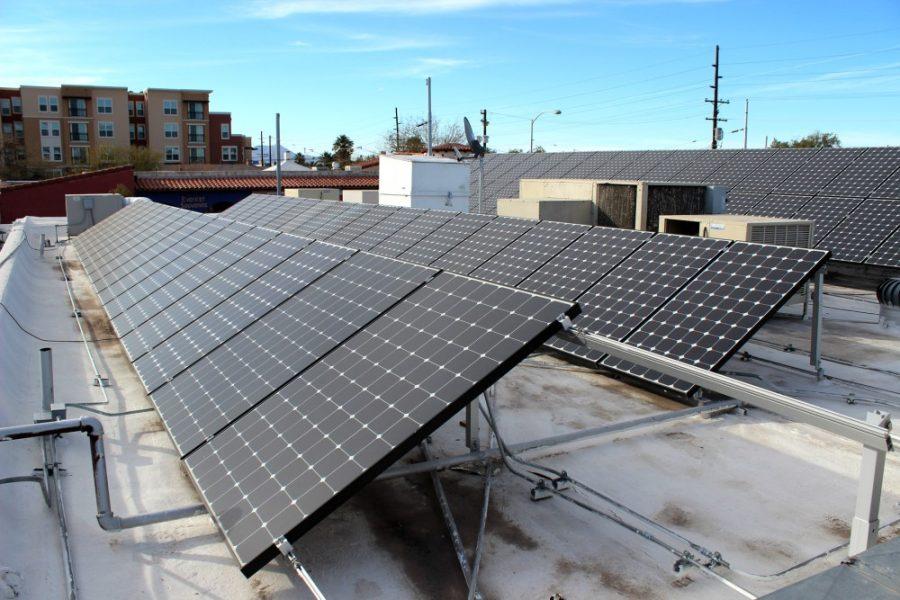Pizza may not grow on trees, but at the Brooklyn Pizza Company, it’s baked using the sun. The restaurant, located on Fourth Avenue, has been 100 percent solar since 2011. The solar panels not only bake all the pizzas at the restaurant, but also provide shaded parking for customers.
“I’ve always been into solar power. For lack of a better term, it’s a no-brainer,” owner Tony Vaccaro said.
A study being led by UA School of Government and Public Policy professor Adam Henry is looking into why certain individuals or businesses, like the Brooklyn Pizza Company, choose to go solar.
The study will use surveys to gather information about solar-powered residences ranging from the building’s location to the political views of the property’s owner.
The information can be compiled into a model used to predict trends regarding the adoption of solar energy, Henry said.
“The models are incorporating social science and given behavior and rationale into mathematical formulas and creating virtual households,” Henry said.
One of the major deterrents to adopting solar energy is cost. Vaccaro decided to go solar seven years ago and is now starting to see a return on his investment, he said.
Cost, geography and property ownership are all major factors to consider when adopting solar energy, Henry said.
“Some of the reasons I got into solar is that there is free electricity, it helps the environment and no reliance on foreign oil,” Vaccaro said.
The research team is also hoping to determine how social factors, like a person’s neighborhood, play a role in the decision to convert to solar energy, Henry said.
“Human decision-making is extremely complex. There are so many factors to consider,” said Shikhar Kumar, a postdoctoral student in the UA Department of Psychology working with Henry on the solar modeling project.
Henry is conducting his research in several states besides Arizona, including California, New Jersey and New York. These states were chosen because more of their residents are adopting solar than residents in other areas, Henry said.
The models will be used to inform policy makers and focus attention on the factors that have the most influence when considering to adopt solar, he said.
Vacarro said he has been happy with his choice.
“It was one of the best decisions I’ve ever made,” Vacarro said.









